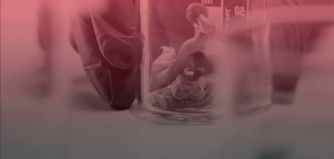Boston Biotech Hub: The Biopharma Pipeline

June 19, 2018
Boston goes hand-in-hand with the Massachusetts Institute of Technology and Harvard, big name universities linked to the people behind everything from Arpanet to Facebook. Indeed, MIT helped to make the term technology part of our modern lexicon. But while Boston may have a reputation as a powerhouse incubator for computing, the city and neighboring Cambridge are also generating traction as a biotech and pharma hub.
Today the Boston Metro area is home to the largest concentration of biopharma activity in the world. Boston and Cambridge alone host about 1,000 biotechnology firms, from pioneering startups, to $50 billion companies, as well as academic centers, and life science firms. Many are clustered in Kendall Square, a district close to MIT, which is also a major landlord.
The Stanford-Palo Alto of the East
Generally speaking, the mix of universities, hospitals, corporations and startups has been key for the overall industry in Boston. It’s the kind of network dynamic — pithily described by the Economist as “clusterluck” — that will feel familiar to anyone who has spent time in South San Francisco or Silicon Valley’s unofficial capital of Palo Alto near Stanford University.
As was the case in the Bay Area, Boston’s arrangement came about less because of a blueprint than by happenstance. Back when regional networked-based economies were just beginning to spring up around U.S. cities in a noticeable way, two early enterprises — Biogen and Genzyme — opened up, helping to anchor the biopharma industry in Boston.
For a while that industry was eclipsed by hopes for the high tech computing. Boston’s economy didn’t follow the tidy trajectory laid out for developing high tech in the 1990s. But the early ventures like Biogen and Genzyme stayed put and, over the years, entrepreneurial technologists, scientists and MBAs followed in their footsteps. This later wave of arrivals helped to swing big name pharma outfits like Novartis toward Boston, as did a life sciences initiative launched in 2008.
The Biopharma Pipeline
The $1 billion,10-year development plan aimed to solidify Boston’s reputation for cutting-edge biotech research. In addition to infrastructure, much of the money was earmarked for tax incentives to lure companies to the area and for developing the workforce needed to staff them. Today outfits like Editas Medicine, CRISPR Therapeutics, Intellia and Bluebird Bio, all focused on gene editing, have opened offices or headquarters in Boston. Likewise, companies from like General Electric to Bayer are eager to tap into the “unique innovation ecosystem.”
As a result of the efforts, the state now represents 19 percent of drug candidates in the U.S. pipeline, according to the Massachusetts Biotechnology Council. Just over half (964 out of a total of 1,896) were in the pre-trial phase, according to 2017 Massachusetts-wide figures. Twenty such candidates were awaiting FDA approval. Ontology led in terms of types of drugs being developed but aside from scale, the state prides itself on being an innovative source of drug discovery. Companies headquartered in Massachusetts have their share of candidates being fast tracked and expedited by the FDA — they received 12 percent of all orphan designations in the nation, and 6 percent globally, in the first half of 2017. It’s not always easy to put markers like these in context but it’s enough to say that Boston has very little company at the top of research and development comparisons.
Money of course is part of the competition for numbers and venture capital plays a big part in the flurry of activity (VC investment in Massachusetts biopharma companies was estimated at $2.9 billion in 2016, more than triple the $900 million in 2012). In addition, federal funds provide a significant source of income. Massachusetts receives the most per capita funding per year from among all U.S. states. The money goes to local hospitals like Massachusetts General and institutions like Harvard and MIT, but Tufts, Northeast, Brandeis and Whitehead Institute for Biomedical Research also receive their share.
This may account for the concentration of drug development research in the Boston area as compared to the Bay Area, whose deep footprint in IT development sometimes steers in a slightly different direction. That said, since 2011, Google, Amazon, Microsoft, and the pharma giants Novartis and Pfizer are among a list of high tech companies expanding their offices and laboratories. This is often taken as a signal of an increasing overlap between high tech and medicine. If so, the IT-biotech connection will have come full circle in Boston.




